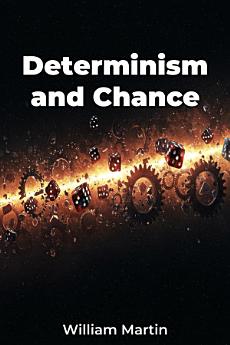Determinism and Chance
About this ebook
The book traces the evolution of these ideas, beginning with classical physics and moving through quantum indeterminacy, chaos theory, and statistical mechanics, illustrating how deterministic systems can exhibit unpredictable behavior. For instance, chaos theory demonstrates how even simple systems can produce wildly different outcomes based on tiny changes in initial conditions, similar to how a butterfly flapping its wings might influence weather patterns across the globe.
Ultimately, the book synthesizes philosophical analysis with scientific evidence, offering a clear and accessible exploration of these profound topics. Throughout its chapters, Determinism and Chance connects physics, mathematics, philosophy, and information theory, demonstrating the interdisciplinary relevance of these concepts. It considers the implications for understanding free will, the nature of time, and the limits of scientific knowledge, while refraining from deep mathematical derivations. The book aims to stimulate further discussion on fundamental questions about reality and our place in the cosmos.







